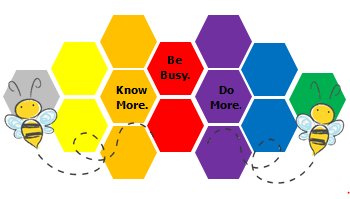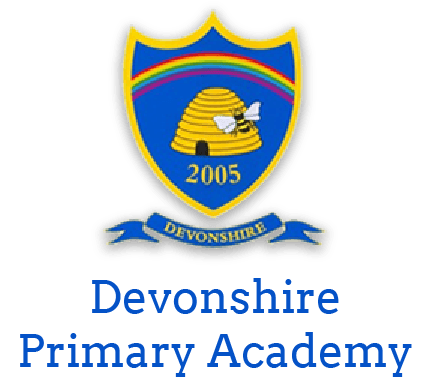Here, Preschool are learning how to respect and care for the natural environment.


A KS1 fieldwork trip to Lytham St Anne’s to explore the coast.

Year 5 learnt about the biometrics of the world.

Geography
What makes a good geographer?
- A good geographer asks questions.
- A good geographer can explain their findings.
- A good geographer knows the links between human and physical features.
- A good geographer wants to develop their fieldwork and map reading techniques.
- A good geographer is analytical.
Overview
Geography is a rich and diverse subject that inspires a curiosity and fascination about the world. It provides a means of exploring, appreciating and understanding the world in which we live and how it has evolved. Through the study of Geography, children foster an enthusiasm and a passion for learning about places, people, resources, environments and the effect of mankind.
Our Geography Curriculum develops the essential characteristics of geographers:
- An excellent knowledge of where places are and what they are like.
- An excellent understanding of the ways in which places are interdependent and interconnected and how much human and physical environments are interrelated.
- An extensive base of geographical knowledge and vocabulary.
- Fluency in complex, geographical enquiry and the ability to apply questioning skills and use effective analytical and presentational techniques.
- The ability to reach clear conclusions and develop a reasoned argument to explain findings.
- Significant levels of originality, imagination or creativity as shown in interpretations and representations of the subject matter.
- Highly developed and frequently utilised fieldwork and other geographical skills and techniques.
- A passion for, and commitment to, the subject, and a real sense of curiosity to find out about the world and the people who live there.
- The ability to express well-balanced opinions, rooted in very good knowledge and understanding about current and contemporary issues in society and the environment.
- Experience of their local environment which will include learning walks to visit local physical and human features.
At Devonshire Primary Academy, our pupils receive a rich, broad, balanced and deep curriculum, enabling them to gain an appreciation of life in all its fullness. Whilst the importance of geographical knowledge is recognised, we also wish to inspire and create globally-aware pupils who have the skills and attitudes to continue to appreciate the world around them.
Our Geography Curriculum
In EYFS, Geography runs through specific topics taught through SFA and links to the EYFS knowledge buttons (see EYFS Curriculum for more information). In Year 1 – Year 6 there are 3 geography topics per year which are taught in each term as follows:
- Autumn – Maps of the World
- Spring – Amazing Earth
- Summer – Investigating Places
This order of learning allows the children to learn knowledge and techniques which they will then apply in subsequent terms. The Geography curriculum is designed to help pupils form a Geography schema within their long-term memories. Our Geography schema is a way of organising semantic and procedural knowledge in a meaningful way; through the knowledge buttons (threshold concepts) and relevant milestones that underpin the subject.
These knowledge buttons are:




Locational Knowledge – This concept involves general geographical knowledge, position and significance, both UK and Global.
Human Geography – This concept involves exploring Human Geography on a local and global scale, comparing and contrasting a variety of different places across several continents.
Physical Geography – This concept involves exploring Physical Geography on a local and global scale, comparing and contrasting a variety of different places across several continents.
Techniques – This concept involves enquiry, mapping, fieldwork, critical thinking, communication and vocabulary.
Learning is most effective with spaced repetition; each year progresses on the previous where children move through basic, advancing and deep understanding of the knowledge buttons. This enables children to gain geographical perspective by placing their growing knowledge into different contexts. Retrieval of previously learnt content is a frequent and regular feature of all geography lessons.
Through repetition of these key concepts, children connect topics together and revisit knowledge categories in many ways. Children connect knowledge and build an understanding of the human and physical geography of the world.
Geography Trips
Educational visits enhance the Geography curriculum, allowing children to put skills into practise and to gain first-hand experience of some of the concepts and places they have studied in the classroom. Past Geography trips have included an EYFS Geography walk in our local area, KS1 trips to Blackpool promenade and beach and KS2 trips to Beacon Fell and Borwick Hall.
Previously, our weekly extra-curricular Beach Club has been incredibly popular with KS1 children, The club allows children the opportunity to explore the physical and human features of the local beach and sand dunes.
Geography at Home
There are lots of ways in which you can support your child with their Geography learning.
- Explore ‘Google Earth’ together to find famous landmarks or locations.
- Look at maps of different places or attractions that you visit. You can usually find maps in free information leaflets.
- Investigate a new country together. You could look at a country’s location in comparison to the UK or investigate food that might be eaten there.
- Having access to an atlas is a fantastic way for children to ask questions and become curious about the various countries around the world.
- Go on a geography walk of your local area, looking at the different features. You could even talk about how it has changed over time from your own memories.

